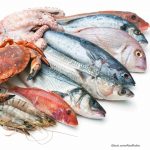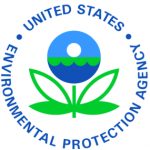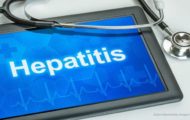High mercury and dioxin levels in fish from the Neches River Basin have prompted the Texas Department of State Health Services to issue a consumer advisory. Six species are named in the advisory which covers the Sam Rayburn Reservoir, the B.A. Steinhagen Reservoir and the stretch of river between the State Highway 7 bridge west of Lufkin and the Highway 96 bridge near Evadale. Eating fish with elevated levels of mercury or dioxin can cause illness. Children under 12 and women who are nursing, pregnant or who may become pregnant are at special risk for mercury and dioxin in food as these toxins can affect the nervous systems of unborn and young children. Swimming in these waters should not pose a health risk, authorities said. Women of childbearing age and children 12 and under should … [Read more...]
Chilean Chicken Recall for Dioxin Expands
The recall of chicken for dioxin contamination that was imported from Chile has expanded according to the USDA's Food Safety and Inspection Service (FSIS). The government of Chile notified U.S. officials that the chicken tested positive for the carcinogenic substance. As of today, 343,637 pounds of chicken may be affected and 155,595 pounds is currently being held. FSIS determined that 188,042 pounds of the chicken was distributed to federal establishments for further processing, a distributor, and retail locations in Florida, Georgia, New York, Pennsylvania, and Puerto Rico. Public health officials in the U.S. conducted an analysis of the Chilean test results and have determined that the risk to consumers is negligible. But they are considered unfit for consumption and adulterated, and … [Read more...]
Food & Water Watch Questions USDA After Dioxin-Contaminated Chicken Recalled
Consumer advocacy group Food & Water Watch called on the USDA to answer questions about gaps in the government's import system after 200,000 pounds of chicken imported from Chile was recalled for dioxin contamination over the weekend. They would like to know when the government learned of the problem, since there was a lag issuing the press release, and if port-of-entry inspection procedures played a role in identifying the problem. Since there was a 2012 audit of the Chilean food safety system that indicated staff needed training on dioxin contamination, how long has this been an issue? Finally, why was a press release issued, instead of a recall or a public health alert? Dioxin is a highly toxic chemical and can cause cancer, reproductive and developmental problems, damage the … [Read more...]
Chicken Imported From Chile Recalled for Dioxin
Chicken imported form Chile is being recalled after testing positive for dioxin, according to the U.S. Department of Agriculture Food Safety and Inspection Service (FSIS). The agency has determined that 188,522 lbs of chicken may be affected and 126,082 lbs is currently being held. FSIS is tracking the distribution of the remaining 62,440, lbs. of chicken to make sure companies that received the tainted chicken were notified of the recall by the Chilean Ministry of Health and Ministry of Agriculture which oversees food recalls in Chile. FSIS has issued a "public notification" but not a recall because the Chilean agency has already done so. Dioxins are highly toxic environmental pollutants that can cause cancer, reproductive and developmental problems; damage the immune system and … [Read more...]
Eggs Recalled in Germany for Dioxin Contamination
More than 250,000 eggs are being recalled in the Lower Saxony area of Germany after testing found excessive levels of dioxin. Contaminated feed may be the source of the chemical. Product details: Manufacturer: 0-0356091-DE Expiration date: 14/06/2012 Stamp number: 0-0356091-EN Dioxins are environmental pollutants. They accumulate in animal fat over time. The chemicals belong to the "dirty dozen", which is a group of chemicals known as "persistent organic pollutants". Dioxins are by-products of manufacturing processes such as the bleaching of paper, smelting, and the production of pesticides and herbicides. Long-term exposure to dioxin can cause harm to the immune system, the developing nervous system in infants and children, and reproductive organs. The recall notice … [Read more...]
Poland Recalls Food That May Contain Road Salt
Polish health authorities are recalling more than 500,000 pounds of bread, pickles, and other foods that may contain road salt. Three companies in western and northern Poland are suspected of selling the salt to facilities. A criminal investigation has been launched and five people have been arrested so far. The food producers have been ordered to make sure that any food that may have been manufactured using the salt doesn't leave their warehouses. The salt used on roads to de-ice isn't the same thing as rock salt you use to make ice cream. Rock salt is sodium chloride that has been purified. Road salt is unpurified and is mixed with chemicals such as ferric ferrocyanide. It can contain many unsafe compounds, including heavy metals and dioxin. Lab tests have found that the levels of … [Read more...]
EPA Weighs In On Dioxin
After almost three decades of study, pressure from health groups and pushback from polluters, the Environmental Protection Agency (EPA) has released its assessment of dioxin as a health risk. Dioxin is a highly toxic chemical created by industrial pollution, waste incineration and forest fires. It gained notoriety as the defoliant known as Agent Orange during the Vietnam war and in Love Canal, the Niagara Falls neighborhood where 21,000 tons of the secretly buried chemical caused a health threat so severe that a federal emergency was declared in 1978. Dioxin and other similar chemicals known as collectively as dioxins, can cause a range of health problems including reproductive problems, miscarriage, developmental problems, immune system damage, hormone disruption, skin rashes and … [Read more...]
Study Finds PFCs in Food Products Compromise Immune Systems
A study published in the Journal of the American Medical Association has found that exposure to PFCs (perfluorinated compounds) may reduce the effectiveness of childhood vaccines. The study was co-sponsored by the U.S. National Institutes of Health, the Environmental Protection Agency and the Danish government. PFCs are found in food packaging such as fast-food containers and microwave popcorn bags, paper plates, and non-stick cookware. The chemical is used to repel water, stains, and grease. In fact, the Washington Toxics Coalition states that many food packaging products contain PFCs, including pizza boxes. These chemicals don't break down, are a likely human carcinogen, and are pervasive in the environment and in our bodies. Children with high levels of PFCs in their bodies had … [Read more...]










